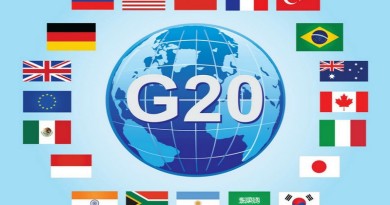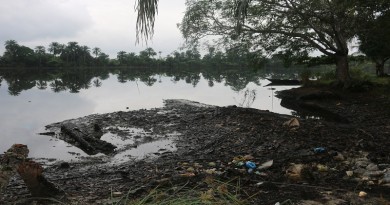Bamako Convention: Preventing Africa from becoming a dumping ground for toxic wastes
African nations have long been at the center of incidents involving hazardous waste dumping. From the leaking barrels of toxic waste in Koko, Nigeria in 1988 and the Probo Koala scandal in Cote d’Ivoire in 2006, to the current piles of e-waste threatening the health of West African communities; the continent continues to be disproportionally affected by the dumping of harmful chemical materials.
In an effort to prevent incidents such as ‘Koko’ and ‘Probo Koala’ from happening again, and to reinforce existing international treaties surrounding the shipment and disposal of hazardous waste – as established in the Basel Convention and Bamako Convention – African States will come together for the second Conference of the Parties (COP2) to the Bamako Convention.
The conference will be held from 30 January to 01 February 2018 in Abidjan, Cote d’Ivoire. While pursuing the objectives of the Convention, COP 2 will be a platform to discuss ways and means of ensuring that the continent rids itself of hazardous wastes and contribute to the achievement of a pollution-free planet.
“We have a collective responsibility to safeguard communities from the environmental and health consequences of hazardous waste dumping,” said Ibrahim Thiaw, Deputy Executive Director of UN Environment. “The creation of regional Public-Private Partnerships could lead to the creation of adequate facilities to manage hazardous waste internally generated in Africa. Previous experiences have led us to establish these international treaties around chemical waste, and together we must ensure they continue to be adhered to.”
The Basel Convention, established in 1989, prevents the shipment and disposal of hazardous waste from industrial to developing countries. This international treaty establishes a procedure of strict requirements and consents of any trans-boundary movement of hazardous waste.
To complement the Basel Convention, African Nations established the Bamako Convention in 1991. The Convention, which came into force in 1998, is aimed at protecting the health of populations and the environment of African countries through a ban on the import of all hazardous and radioactive wastes. It also prohibits the dumping or incineration of hazardous wastes in oceans and inland waters, and promotes the minimization and control of trans-boundary movements of hazardous wastes within the African continent. The Convention also aims to improve and ensure ecologically rational management and handling of hazardous waste within Africa, as well as the cooperation between African nations.
“It is expected that at COP-2 of the Bamako Convention, Parties will reaffirm their engagement for an effective implementation of the Convention including establishing synergies with other international treaties,” said Julliette Biao Koudenoukpo, Regional Director and UN Environment Representative in Africa.
“Parties are also expected to identify mechanisms and financial resources to implement the Convention,” she added.
The first Conference of the Parties (COP-1) to the Convention took place from 24 to 26 June 2013 in Bamako, Mali. One of the outcomes of this Conference is a declaration by African Ministers of Environment in which they state their determination “to prevent Africa from becoming a dumping ground for toxic wastes through an effective implementation of the Bamako Convention”. The declaration further states that “the import of hazardous waste into Africa is a crime against humanity” and commit “to prompt action to overcome barriers to effective management and minimization of waste in Africa through increased knowledge on waste scenarios in order to prevent harm to health and environment.”




